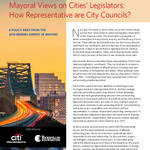Menino Survey of Mayors
Our team has interviewed mayors from across the country to examine the leadership and management challenges facing modern-day mayors today and over time, through a first of its kind mayoral leadership research initiative.
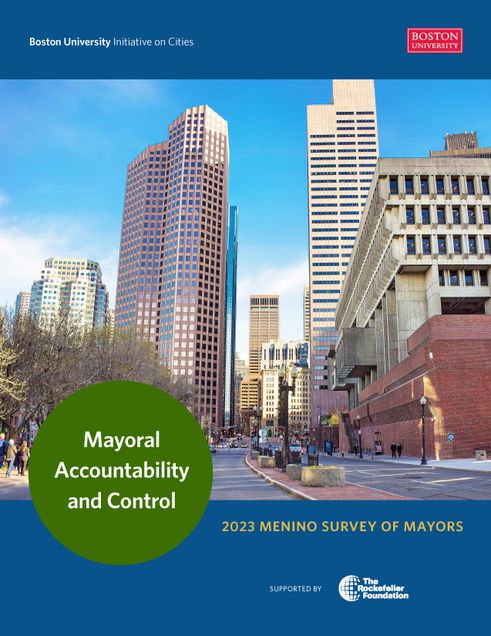
The 2023 Menino Survey of Mayors represents the tenth nationally representative survey of American mayors and is based on interviews with 118 sitting mayors from 39 states. The 2023 Survey explores mayoral views on Inflation Reduction Act (IRA) implementation and issues ranging from clean energy and permitting, to public messaging, to capacity challenges, to government accountability and control. The second set of findings, Mayoral Accountability and Control, released in April 2024, examines how mayors view their control and accountability over a variety of elements of local government, and how these perceptions have changed in recent years. The 2023 Survey continues with the support of The Rockefeller Foundation.
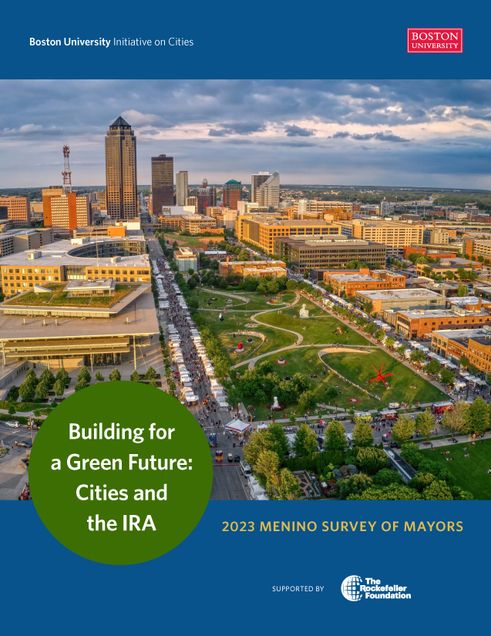
The 2023 Menino Survey of Mayors represents the tenth nationally representative survey of American mayors and is based on interviews with 118 sitting mayors from 39 states. The 2023 Survey explores mayoral views on Inflation Reduction Act (IRA) implementation and issues ranging from clean energy and permitting, to public messaging, to capacity challenges, to government accountability and control. The first set of findings, Building for a Green Future: Cities & the IRA, released in March 2024, details mayors’ initial experiences with the Inflation Reduction Act (IRA) and identifies key challenges at the local level to realizing the law’s potential. The 2023 Survey continues with the support of The Rockefeller Foundation.

The 2022 Menino Survey of Mayors represents the ninth nationally representative survey of American mayors and is based on interviews with 118 sitting mayors from 38 states. The 2022 Survey explores mayoral views on climate and energy, poverty and rising costs of living, and health and safety. The second and final set of findings, released in April 2023, analyzes mayors’ views on key economic challenges – including poverty and the rising cost of living – and tools they can use at the local level. It also investigates what mayors perceive to be the main public health and public safety challenges in their communities. The 2022 Survey continues with the support of The Rockefeller Foundation.

The 2022 Menino Survey of Mayors represents the ninth nationally representative survey of American mayors and is based on interviews with 118 sitting mayors from 38 states. The 2022 Survey explores mayoral views on climate and energy, poverty and rising costs of living, and health and safety. The first set of findings, released in January 2023, delves into mayors’ current views on local climate action, focusing on their beliefs about the underlying issues and threats, their sense of the tools they have at their disposal, and their enthusiasm for using them. The 2022 Survey continues with the support of The Rockefeller Foundation.
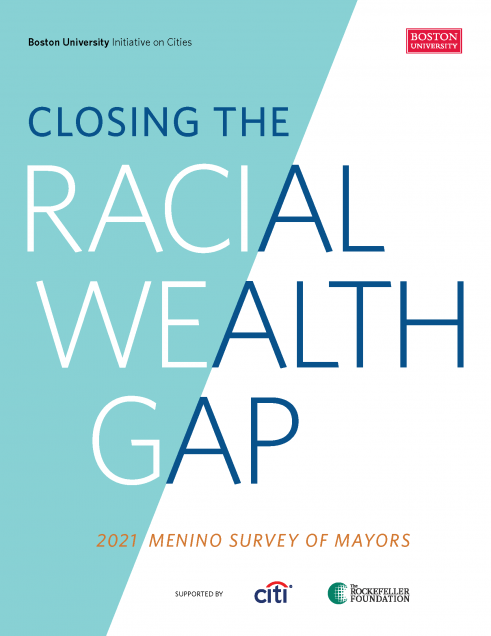
The 2021 Menino Survey of Mayors represents the eighth nationally representative survey of American mayors and is based on interviews with 126 sitting mayors from 39 states. The 2021 Survey explores mayoral views on COVID-19 recovery, equity and small business, closing the racial wealth gap, and housing and homelessness. The third and final set of findings, released in March 2022, explores how mayors are approaching the racial wealth gap in their cities. The 2021 Survey continues with the support of Citi and The Rockefeller Foundation.
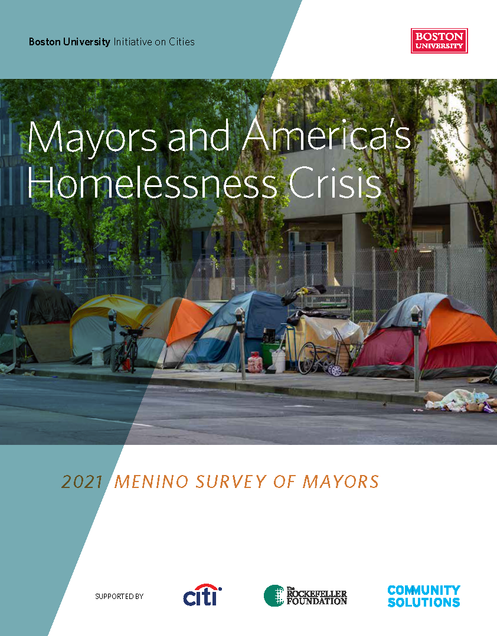
The 2021 Menino Survey of Mayors represents the eighth nationally representative survey of American mayors and is based on interviews with 126 sitting mayors from 39 states. The 2021 Survey explores mayoral views on COVID-19 recovery, equity and small business, closing the racial wealth gap, and housing and homelessness. The second set of findings, released with Community Solutions, delves into homelessness, including mayoral perspectives on roles, challenges, and opportunities for addressing the crisis in their cities. The 2021 Survey continues with the support of Citi and The Rockefeller Foundation.
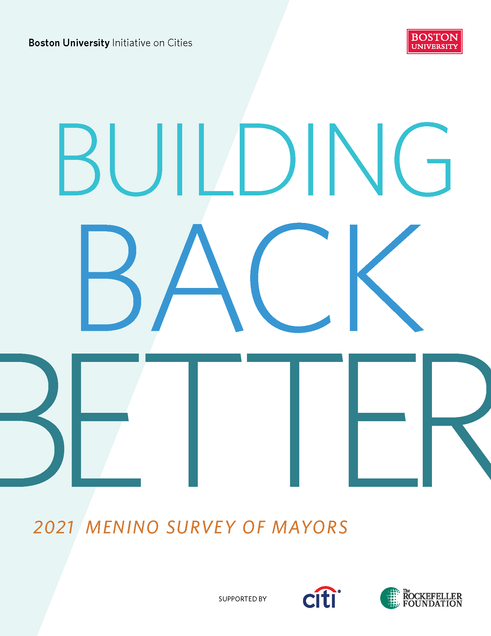
The 2021 Menino Survey of Mayors represents the eighth nationally representative survey of American mayors and is based on interviews with 126 sitting mayors from 39 states. The 2021 Survey explores mayoral views on COVID-19 recovery, equity and small business, closing the racial wealth gap, and housing and homelessness. The first set of findings, released in November 2021, delves into the challenges mayors are facing in light of the ongoing pandemic—and the extent to which massive support from the federal government has helped to fill the gap. The 2021 Survey continues with the support of Citi and The Rockefeller Foundation.
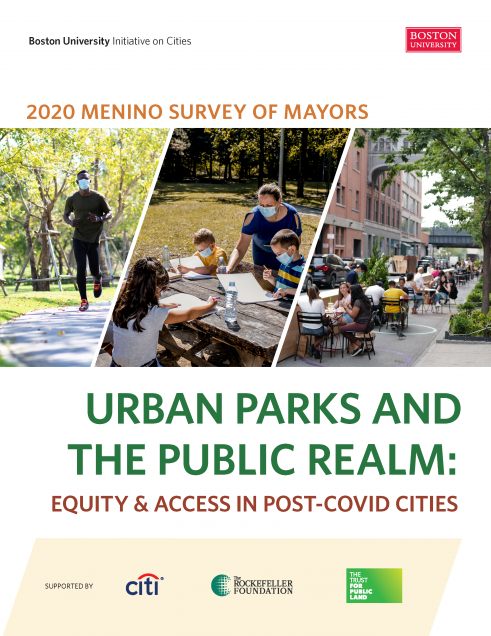
The 2020 Menino Survey of Mayors represents the seventh nationally representative survey of American mayors and is based on interviews with 130 sitting mayors from 38 states. The 2020 Survey explores mayoral views on COVID-19 recovery, policing and protests, parks and greenspace, and the 2020 Census. The final set of findings, released in March 2021 with The Trust for Public Land, delves into how the disruptions of this unprecedented year have shaped mayoral perspective on parks and streets. The 2020 Survey continues with the support of Citi and The Rockefeller Foundation.

The 2020 Menino Survey of Mayors represents the seventh nationally representative survey of American mayors and is based on interviews with 130 sitting mayors from 38 states. The 2020 Survey explores mayoral views on COVID-19 recovery, policing and protests, parks and greenspace, and the 2020 Census. The third set of findings, released in January 2021, explores mayors’ recognition of racial inequality, their roles during protests in their communities, and how they hope to reform their police departments. Additional findings on parks and greenspace will be released as a separate report next month. The 2020 Survey continues with the support of Citi and The Rockefeller Foundation.

The 2020 Menino Survey of Mayors represents the seventh nationally representative survey of American mayors and is based on interviews with 130 sitting mayors from 38 states. The 2020 Survey explores mayoral views on COVID-19 recovery, policing and protests, parks and greenspace, and the 2020 Census. The second set of findings, released in December 2020, outlines mayors’ responses to the global pandemic, perceptions of its impact, and expectations for the future of their cities. Additional findings will be released as separate reports in the coming months. The 2020 Survey continues with the support of Citi and The Rockefeller Foundation.
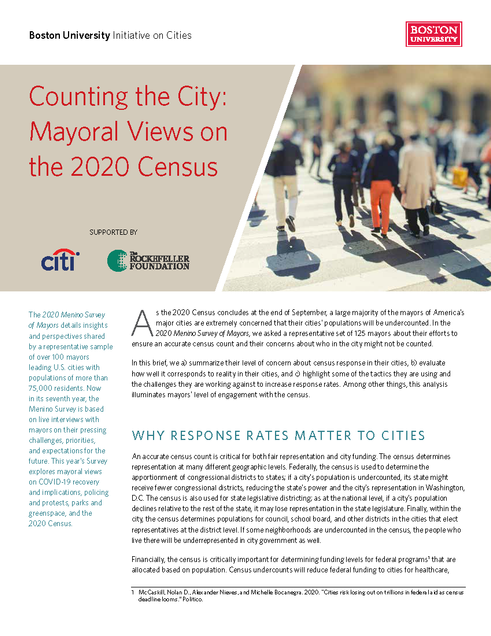
The 2020 Menino Survey of Mayors represents the seventh nationally representative survey of American mayors and is based on interviews with 130 sitting mayors from 38 states. The 2020 Survey explores mayoral views on COVID-19 recovery, policing and protests, parks and greenspace, and the 2020 Census. The first set of findings, released in September 2020, details mayors’ fears of census undercounts and what actions their cities are taking to increase participation. Additional findings will be released as separate reports in the coming months. The 2020 Survey continues with the support of Citi and The Rockefeller Foundation.
In April 2020, the Initiative published a policy brief related to the 2018 Menino Survey findings: Mayoral Views on Cities’ Legislators: How Representative are City Councils? This brief provides additional context and deeper understanding of mayoral perspectives on the quality of their city council’s representation for different racial, ethnic,
economic, and social groupings, and on legislative redistricting in cities.
Supported by Citi and The Rockefeller Foundation.

The 2019 Menino Survey of Mayors represents the sixth nationally representative survey of American mayors and is based on interviews with 119 sitting mayors from 38 states. The 2019 Survey explores mayoral views on issues ranging from infrastructure and transportation priorities — including mobility and public safety — to the changing nature of work. The 2019 Survey also provides the first in-depth examination of mayors’ reactions to and expectations for the Opportunity Zones program, a significant new federal initiative to stimulate urban development. The 2019 Survey continues with the support of Citi Community Development and The Rockefeller Foundation.
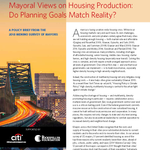
In December 2019, the Initiative published two policy briefs related to the 2018 Menino Survey findings: Mayoral Views on Housing Production: Do Planning Goals Match Reality? & Mayoral Views on Economic Incentives: Valuable Tools or a Bad Use of Resources?. The briefs provide additional context and deeper understanding of mayoral perspectives on housing production goals and on the use of economic incentives to attract new businesses.
Supported by Citi and The Rockefeller Foundation.

In June 2019, the Initiative published a corollary report to the 2018 Menino Survey, Mayors and the Health of Cities. The report sheds sheds light on how US mayors perceive and prioritize the health of their cities in the context of existing urban health data. The report also highlights promising city-led initiatives targeting four priority health areas: the obesity epidemic, the opioid crisis, traffic fatalities, and gun violence.
Supported by Citi and The Rockefeller Foundation.
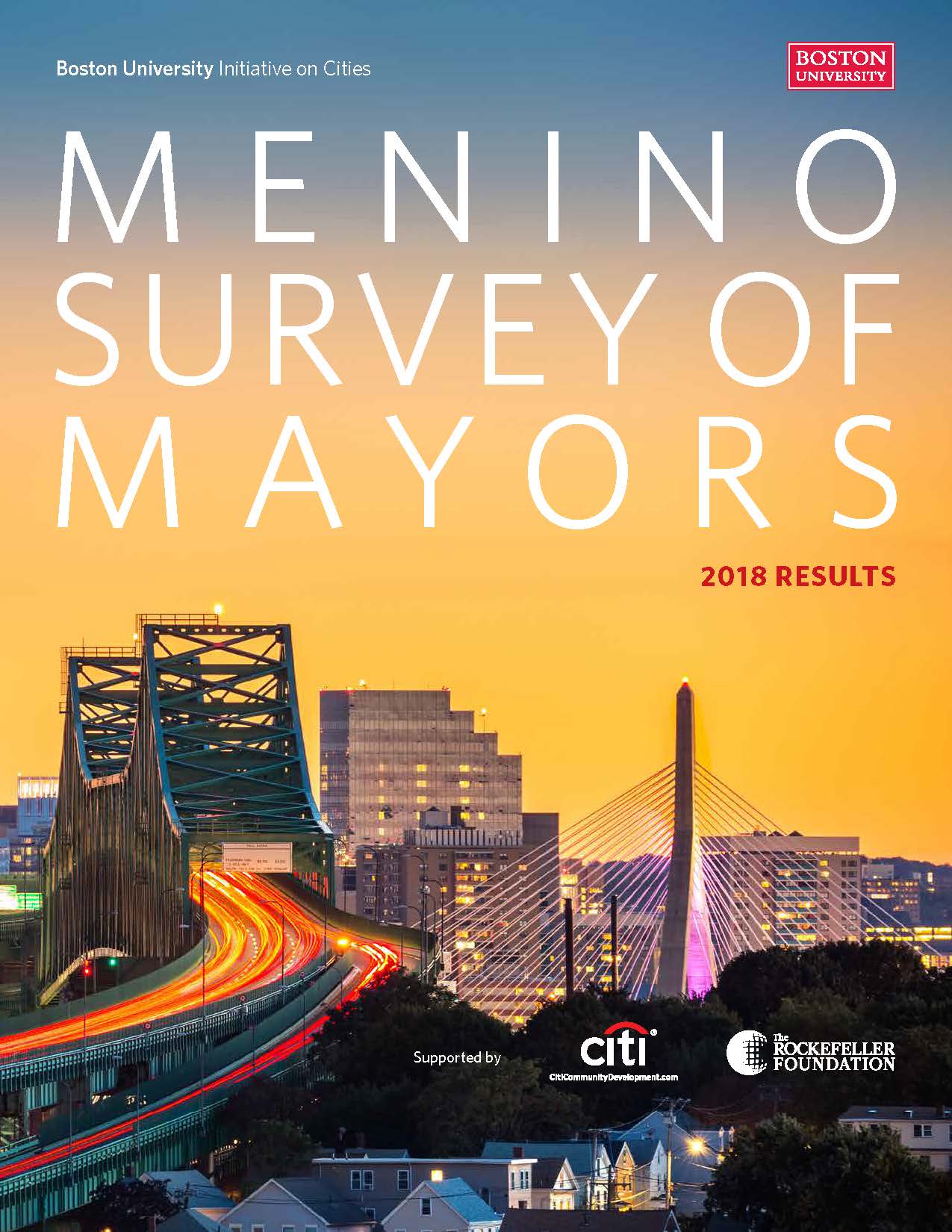
The 2018 Menino Survey of Mayors represents the fifth nationally representative survey of American mayors and is based on interviews with 110 sitting mayors from 37 states. The 2018 Survey reveals mayoral views on economic development—including corporate recruitment, financial incentives, the sharing economy, and social mobility—as well as public health, housing, and intergovernmental relations.
Supported by Citi Community Development and The Rockefeller Foundation.
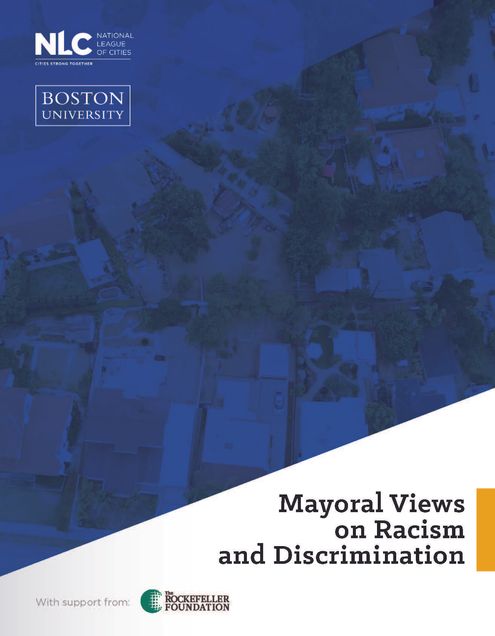
In September of 2018, the Initiative published Mayoral Views on Racism and Discrimination, co-written with the National League of Cities. This report, which draws on data from the 2017 Menino Survey, explores how mayors of medium-sized and large cities understand race, discrimination and equity in their communities and on a national level. The report also highlights several successful initiatives that cities, including Anaheim, Boston, Louisville and New Orleans, have undertaken in combating discrimination.
Supported by The Rockefeller Foundation.
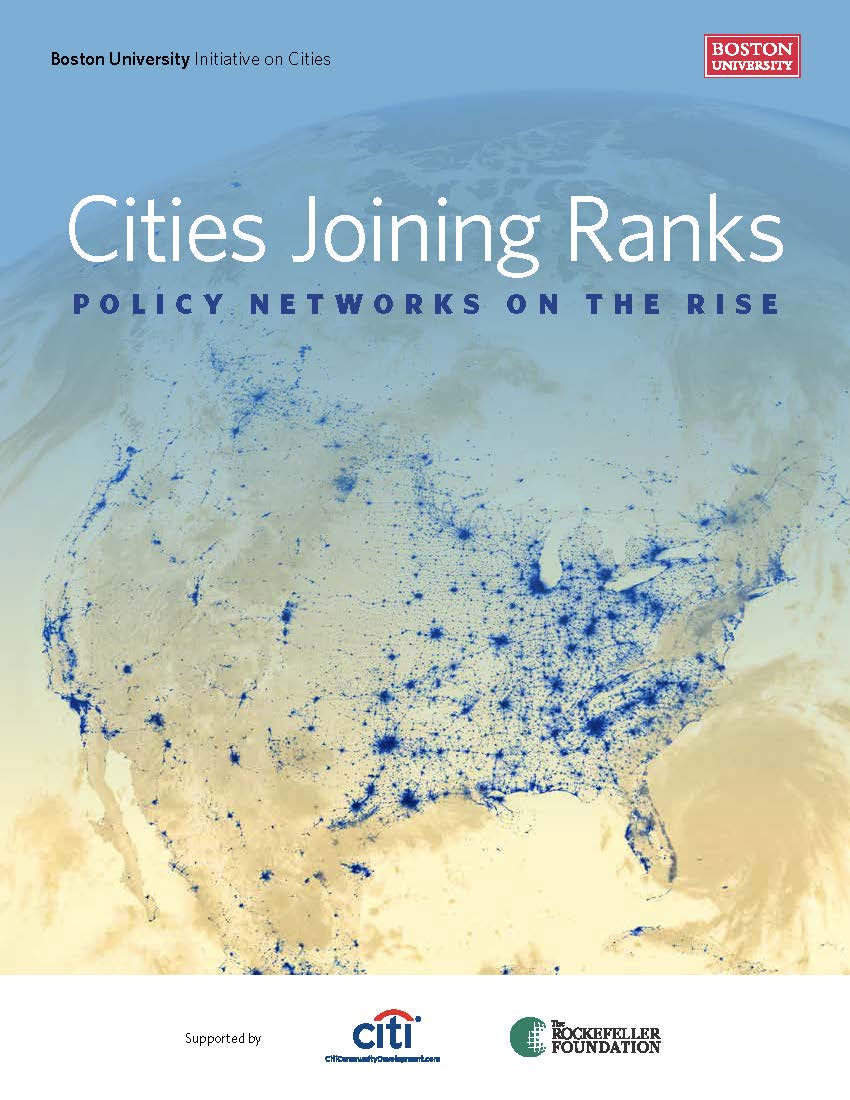
In April of 2018, we published a corollary report to the 2017 Menino Survey, Cities Joining Ranks—Policy Networks on the Rise. The report offers the first systematic review of US city-to-city policy network activities, their media visibility, perceived value in the eyes of mayors, and membership composition. The report also provides novel insights into city peer groups based on an evaluation of network joining behavior.
Supported by Citi Community Development and The Rockefeller Foundation.

The 2017 Menino Survey of Mayors represents the fourth nationally representative survey of American mayors and is based on our widest sample to date—115 sitting mayors from 39 states. The 2017 Survey delves into the ways in which mayors are tackling critical urban issues of both local and global import—from housing young families and aging residents to mitigating and adapting to the effects of climate change—while confronting federal and state funding gaps. The research also offers insight into how mayors are rallying individually and as a collective to affect positive change.
Supported by Citi Community Development and The Rockefeller Foundation.
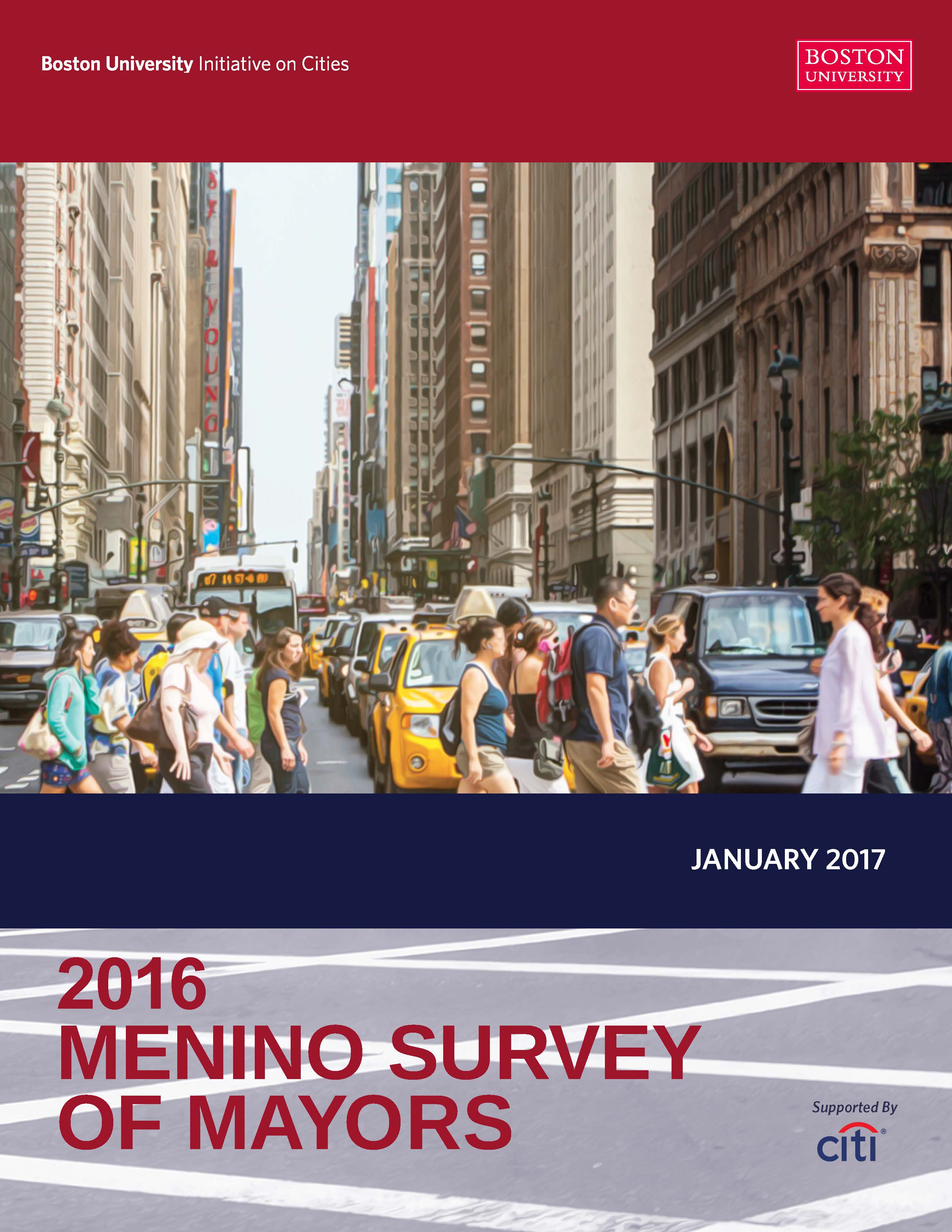
The 2016 Menino Survey of Mayors encompassed insights and perspectives shared by a representative sample of 102 mayors from 41 states. While prior years of the Survey have delved more deeply into infrastructure needs and fiscal priorities, the 2016 Survey focused on “people priorities,” including immigration, inclusion, and poverty. Mayors also discussed the impact of the 2016 presidential election on their cities and their hopes for the Trump administration.
Supported by Citi Community Development.
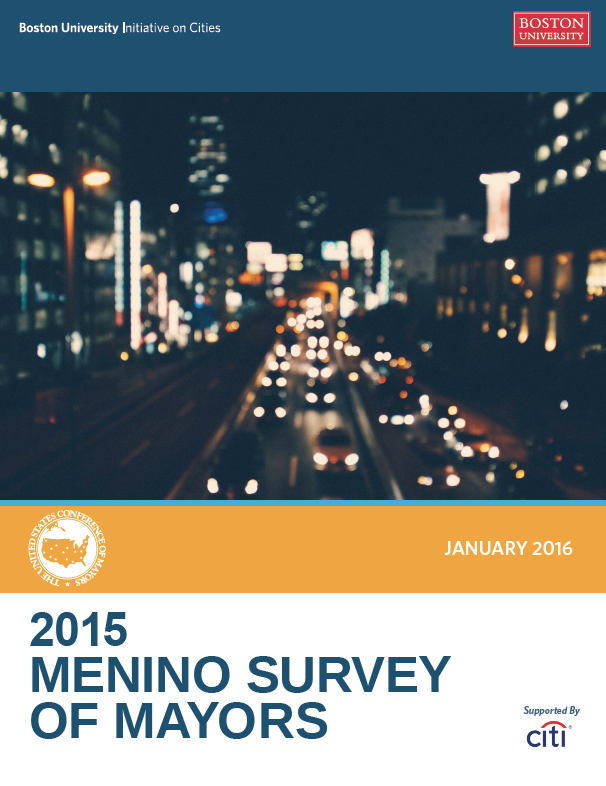
The 2015 Menino Survey of Mayors was built on interviews with a representative sample of 89 mayors from 31 states. The objective was to take mayors’ pulses on key contemporary challenges and policy issues—including infrastructure, public safety, and municipal finance—and identify where mayors turn for help in tackling them. A significant portion of the 2015 Menino Survey is devoted to mayoral leadership, including areas of mayoral control and constituent approval, as well as constraints they confront under increasingly politicized and polarized state legislatures.
Supported by Citi Community Development.
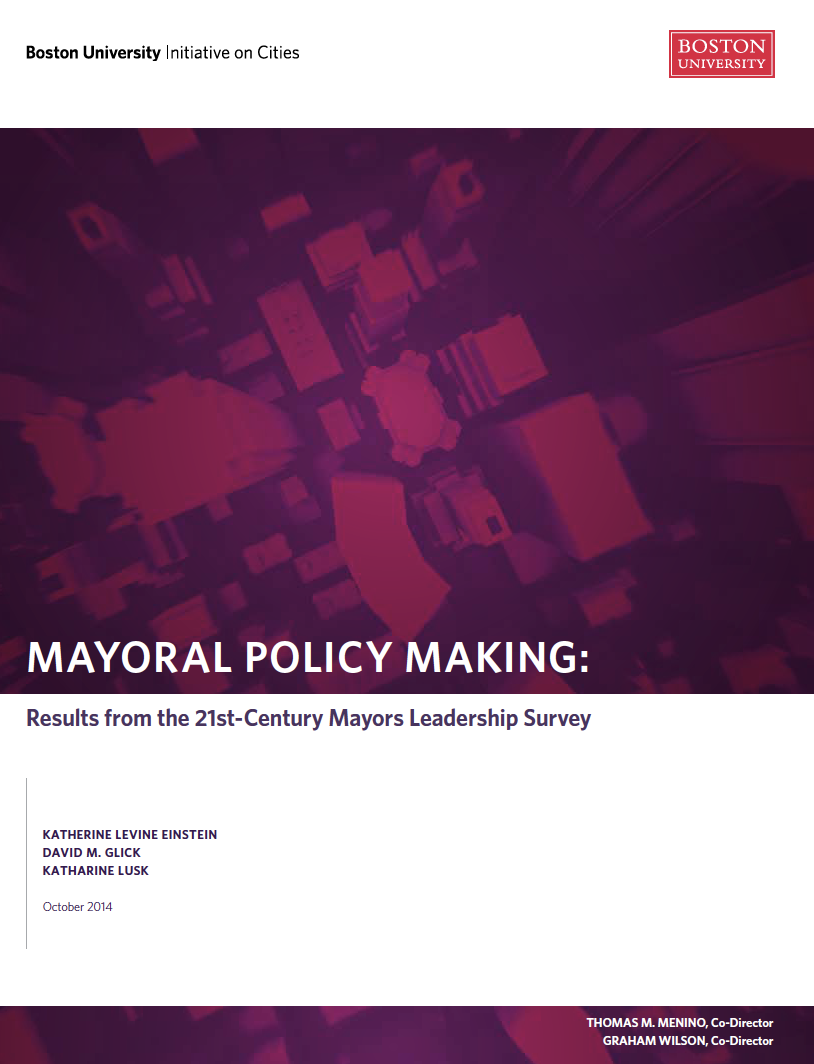
In October of 2014, the Initiative on Cities released a ground-breaking survey of American Mayors, which has since been dedicated as the annual Menino Survey of Mayors. Based on interviews with over 70 mayors, the 2014 Survey offered the first-ever nationally representative review of mayoral priorities and yields fresh insight into the issues mayors care about. The Survey highlights the importance mayors place on the physical, fiscal and social infrastructure of their cities, and—contrary to prior research—suggests that party affiliation has a significant influence on mayoral priority-setting.
Supported by Citi Community Development.

